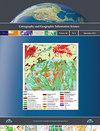地理教育提高空间能力:功能磁共振成像和行为实验的证据
IF 2.4
3区 地球科学
Q1 GEOGRAPHY
Cartography and Geographic Information Science
Pub Date : 2023-02-21
DOI:10.1080/15230406.2023.2171493
引用次数: 2
摘要
以往的行为实验研究表明,地理教育有利于学生空间能力的发展。然而,目前尚不清楚地理教育是如何塑造学生的大脑活动和提高空间能力的。在这篇文章中,我们提出了一种基于神经科学的方法来探索地理教育与空间能力之间的关系。我们进行了一项有63名参与者的行为实验,以及一项有49名参与者的功能磁共振成像实验。所有参与者根据本科年龄和专业分为四组,完成四项空间能力任务。功能磁共振成像和行为学结果显示,经过四年的地理教育,学生比非地理学生具有更强的心理旋转、空间可视化和空间关系推理能力。大脑区域的激活和功能连接进一步表明,地理教育提高了学生的空间参考、空间记忆、视觉注意力和空间决策能力。我们的研究结果为地理教育可以提高本科生的空间能力提供了新的神经科学证据,并为地理人才培养和课程评估提供了一种新的神经影像学方法。本文章由计算机程序翻译,如有差异,请以英文原文为准。
Geography education improves spatial ability: evidence from fMRI and behavioral experiments
ABSTRACT Previous behavior experimental studies indicate that geography education facilitates the development of students’ spatial ability. However, it is unclear how geography education shapes student brain activity and promotes spatial ability. In this article, we proposed a neuroscience-based method to explore the relationship between geography education and spatial ability. We conducted a behavioral experiment with 63 participants and an fMRI experiment with 49 participants. All the participants were divided into groups according to their undergraduate years and majors completed four spatial ability tasks. The fMRI and behavioral results revealed that after four years of geography education, students had greater mental rotation, spatial visualization and spatial relation reasoning abilities than non-geography students. The activation and functional connectivity of brain regions further indicated that geography education improved students’ spatial reference, spatial memory, visual attention and spatial decision-making. Our findings offer new neuroscience evidence that geography education can improve the spatial ability of undergraduate students, and provide new neuroimaging approach for geographic talent cultivation and curriculum assessment.
求助全文
通过发布文献求助,成功后即可免费获取论文全文。
去求助
来源期刊
CiteScore
5.20
自引率
20.00%
发文量
23
期刊介绍:
Cartography and Geographic Information Science (CaGIS) is the official publication of the Cartography and Geographic Information Society (CaGIS), a member organization of the American Congress on Surveying and Mapping (ACSM). The Cartography and Geographic Information Society supports research, education, and practices that improve the understanding, creation, analysis, and use of maps and geographic information. The society serves as a forum for the exchange of original concepts, techniques, approaches, and experiences by those who design, implement, and use geospatial technologies through the publication of authoritative articles and international papers.

 求助内容:
求助内容: 应助结果提醒方式:
应助结果提醒方式:


